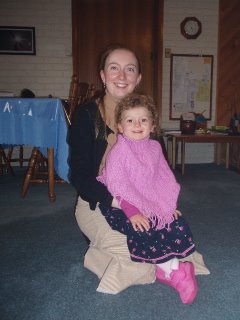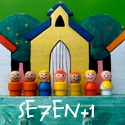Humility
If they did, one would think, out of spite
they would desist from opposing me."
George Whitefield
In his book Forgotten Founding Father: The Heroic Legacy of George Whitefield, Stephen Mansfield documented many of the great evangelist's character traits. He wrote that "George Whitefield was the most famous man of his day . . . and among the most hated. In a crude and spiteful age, the barrage against him was particularly venomous. He was accused of all the usual misdeeds with money, women and fame. But there was so much more. The strange squinting of the eyes that childhood measles left him caused the hostile press to call him "Dr Squintum." There was even a play by that name, written to expose him to a jeering public. If he gained weight, he was a glutton. If he bought property for an orphanage, he was selfishly building an estate for himself." Attacks came from Christians as well as opponents of the gospel. Mansfield wrote that "For some believers, a man cannot simply be wrong about a few things; he must be evil, possibly even controlled by a spirit."
The criticism was extraordinary, but so was Whitefield's response. He "had acquired that condition of soul for which critism becomes an ennobling force. He had learned that criticism is like pain in the human body, giving needed information for a healthy change. One can receive it as a blow and angrily nurse the wound. Or, one can regard the words as an eagle does a gust of wind - as a force upon which to fly still higher." Whitefield wrote to one critic: "I thank you heartily. May God reward you for watching over my soul; and as to what my enemies say against me, I know worse things of myself than they can say concerning me!" Due to this attitude, the criticsm Whitefield received served him. He did not become crushed or bitter. He courageously faced his faults.
I was inspired to post these facts about Whitefield's life after reading Kimi Harris' post Avoiding the way of a fool: inviting correction. Kimi wrote: "I need to recognize that others are going to see sinful tendencies that I am unaware of. If I want to grow in grace, God will use those around to help me, if I encourage and cultivate feedback from them. It is only pride that makes me feel that I can see all of my sin and defeat it without the help of others." This is a challenge to me, and to most Christians. I cringe from hearing others address my faults. I need to keep asking God to help me to be open to receiving correction.
I was also impressed with what Kimi said about a church she visited: "they have created a culture of speaking into each other’s lives. They thank each other for every service rendered, and they speak up when they notice something amiss in each other. Their church culture made correction and feedback more of a daily occurrence, like it should be. This also seemed to help with the tendency to overact to another’s input." This is the opposite of many churches, where to question the church leaders is seen as a terrible thing to do. I was once a part of a pro-life organisation where questioning the leader (a Catholic priest) was seen as highly offensive. Questioning anything the organisation did, or advocating new activities, was seen as an attack on him. The lack of freedom to question and explore options was stifling the effectiveness of the organisation. Christians should never disrespect their leaders. However, as Mansfield notes in relation to Whitefield's attitude to marriage, those who seek to honour leaders do them no disservice by acknowledging their mistakes.
To avoid the stifling effects of avoiding correction, the best we can do is to follow Whitefield's example of humility. He often prayed for humility, and God answered his prayers. When he was on a dangerous sea voyage, the ship seemed about to sink. Some aboard questioned "What Jonah have we here on board?" A voice rang out saying "I am he". All turned toward the voice and saw George Whitefield, the preacher who had led thousands into God's Kingdom. Mansfield wrote that this "was no act . . . The reality is that Goerge Whitefield truly saw himself as small in his own eyes and this is perhaps the best explanation for the astonishing spiritual power that distinguished his life." Such an accurate perpective on ourselves can lead to humility before others, a desire to receive from what God is showing others, and even an ability to accept their correction with courage and thankfulness.
All quotes on Whitefield are taken from Mansfield's book, pages 143 - 145, 191 - 193, and 212. Forgotten Founding Father: The Heroic Legacy of George Whitefield is published by Highland Books as part of the Leaders in Action series. Read more...

















